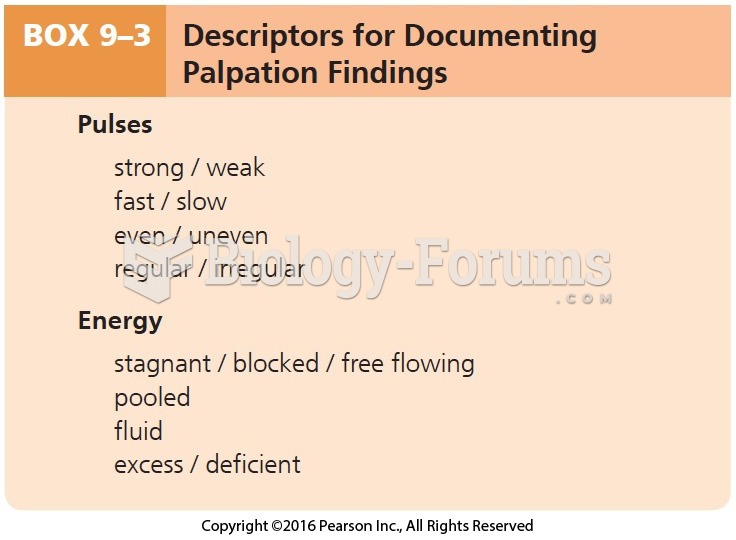Answer to Question 1
2,3
Rationale 1: Incontinence of bowel or bladder is common during a tonic-clonic seizure but is not indicative of a postictal state.
Rationale 2: Deep sleep after the seizure is a finding associated with the postictal state.
Rationale 3: Patients who are in the postictal state may be confused and disoriented.
Rationale 4: An odd taste, specific odor or noise, or other sensory change often heralds a seizure. This is called an aura.
Rationale 5: During complex partial seizures, patients sometimes fumble with or attempt to remove clothing.
Global Rationale: Deep sleep after the seizure is a finding associated with the postictal state. Patients who are in the postictal state may be confused and disoriented. Incontinence of bowel or bladder is common during a tonic-clonic seizure but is not indicative of a postictal state. An odd taste, specific odor or noise, or other sensory change often heralds a seizure. This is called an aura. During complex partial seizures, patients sometimes fumble with or attempt to remove clothing.
Answer to Question 2
2
Rationale 1: Reteplase (Retavase) does not alter fluid balance in the body.
Rationale 2: Cerebral hemorrhage is a concern with reteplase (Retavase) therapy; the nurse must assess for changes in mental and neurological status.
Rationale 3: Reteplase (Retavase) does not cause hypoglycemia.
Rationale 4: Reteplase (Retavase) does not decrease oxygen to the brain.
Global Rationale: Cerebral hemorrhage is a concern with reteplase (Retavase) therapy; the nurse must assess for changes in mental and neurological status. Reteplase (Retavase) does not decrease oxygen to the brain. Reteplase (Retavase) does not cause hypoglycemia. Reteplase (Retavase) does not alter fluid balance in the body.







